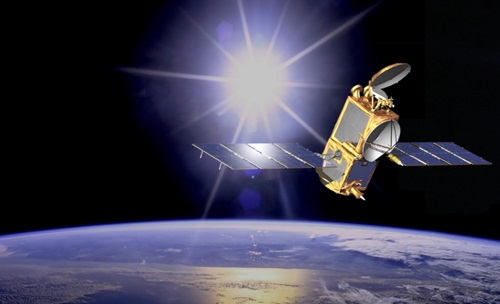Ghana has launched a groundbreaking Space Science Policy aimed at harnessing space technology to propel national development.
The policy, approved by Cabinet in March 2022, is set to coordinate Ghana’s space activities and facilitate the establishment of the Ghana Space Agency to lead human capital development, infrastructure growth, and overall advancement in the sector.
The policy launch, held in Accra on Tuesday, was led by the Minister of Environment, Science, Technology and Innovation (MESTI), Mrs. Ophelia Hayford, who highlighted its significance in regulating and standardising the use of space technology across various sectors.
Ghana launches satellite into space
“Let us leverage this policy to promote sustainable practices, drive technological advancement, foster international cooperation, and contribute significantly to the growth of space science in Ghana and across Africa,” she stated.
Ghana has been employing space technologies in critical areas such as environmental monitoring, precision agriculture, navigation, weather forecasting, disaster management, and telecommunications.
The new policy aims to ensure that these technologies are deployed in a coordinated, sustainable manner, in collaboration with other ministries and the private sector.
Dr. Joseph Bremang Tandoh, Director of the Ghana Space Science and Technology Institute, underscored the economic potential of the policy, stating that investment in Ghana’s space sector would enhance agriculture, infrastructure, and economic growth.
“Space technology can help us manage resources, track agricultural health, and mitigate climate change,” Dr. Tandoh said, adding that the policy would create opportunities for job creation and technological advancement.
Ghana’s space ambitions align with its 2011 partnership in the African Square Kilometre Array (SKA) project, a collaborative effort with South Africa and seven other African nations to build the world’s largest radio telescope network. The initiative represents Ghana’s commitment to leading-edge space research and exploration.
Dr. Kofi Asare, Manager of Remote Sensing and Climate at MESTI, pointed to the advantages of satellite technology in managing land and water resources, predicting crop yields, and monitoring weather patterns to enhance food security. “Satellite technology allows us to track crop health, soil conditions, and weather patterns, making it a vital tool for agriculture and environmental management,” he explained.
The Vice-Chancellor of the University of Energy and Natural Resources, Professor Elvis Asare-Bediako, revealed that the university is preparing to introduce undergraduate and postgraduate programmes in space technology. “We are ready and equipped with expertise to partner with the Government to push the exploration of space technology to its appropriate height,” he affirmed.

